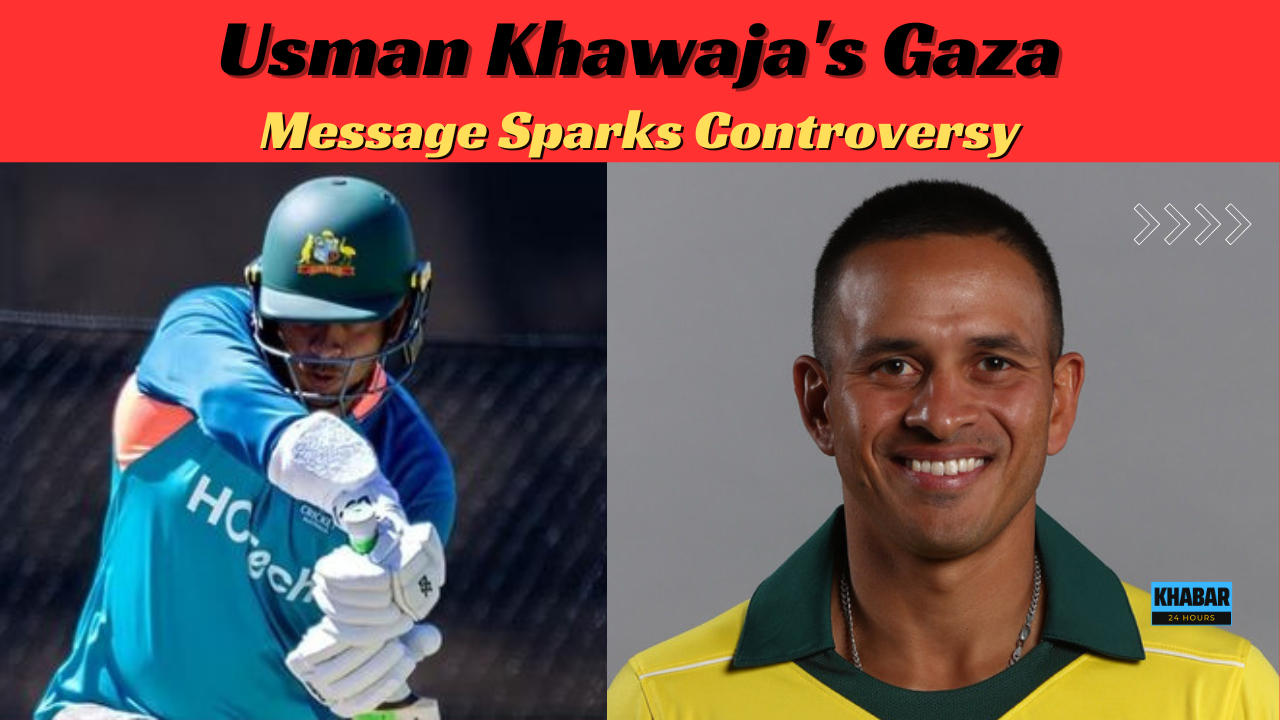
Australian cricketer Usman Khawaja has ignited a firestorm of debate after Cricket Australia (CA) and the International Cricket Council (ICC) banned him from displaying a message of support for Palestinians in Gaza on his bat during a recent Test match against Pakistan. Khawaja, a vocal advocate for human rights, planned to wear shoes emblazoned with the words “all lives are equal” and “freedom is a human right,” but the cricket authorities deemed these messages “political” and prohibited their display.
Khawaja’s Stance:
The 36-year-old batsman has expressed his disappointment and plans to appeal the decision. He argues that his message is not political but rather a humanitarian one, aimed at promoting equality and human rights for all. Khawaja believes that athletes have a responsibility to use their platforms to speak out on important issues.
Freedom of Expression vs. Neutrality:
The ban has sparked heated discussions about the balance between freedom of expression and the neutrality of sports. Some supporters of Khawaja argue that his message is apolitical and should not be censored, while others believe that sports should remain a neutral space and athletes should avoid expressing political views on the field.
Potential Implications:
Khawaja’s challenge could have far-reaching implications for player freedom and the role of athletes in advocating for social causes. A successful appeal could pave the way for greater player expression, while a failure could solidify the current restrictions.
This is a complex and evolving situation with strong arguments on both sides. By providing a balanced and informative perspective, you can engage readers in a meaningful discussion about the role of athletes, freedom of expression, and using sports as a platform for social change.
Stay tuned for further developments as Khawaja’s appeal progresses, and remember, the debate about athletes and social activism is just beginning.

